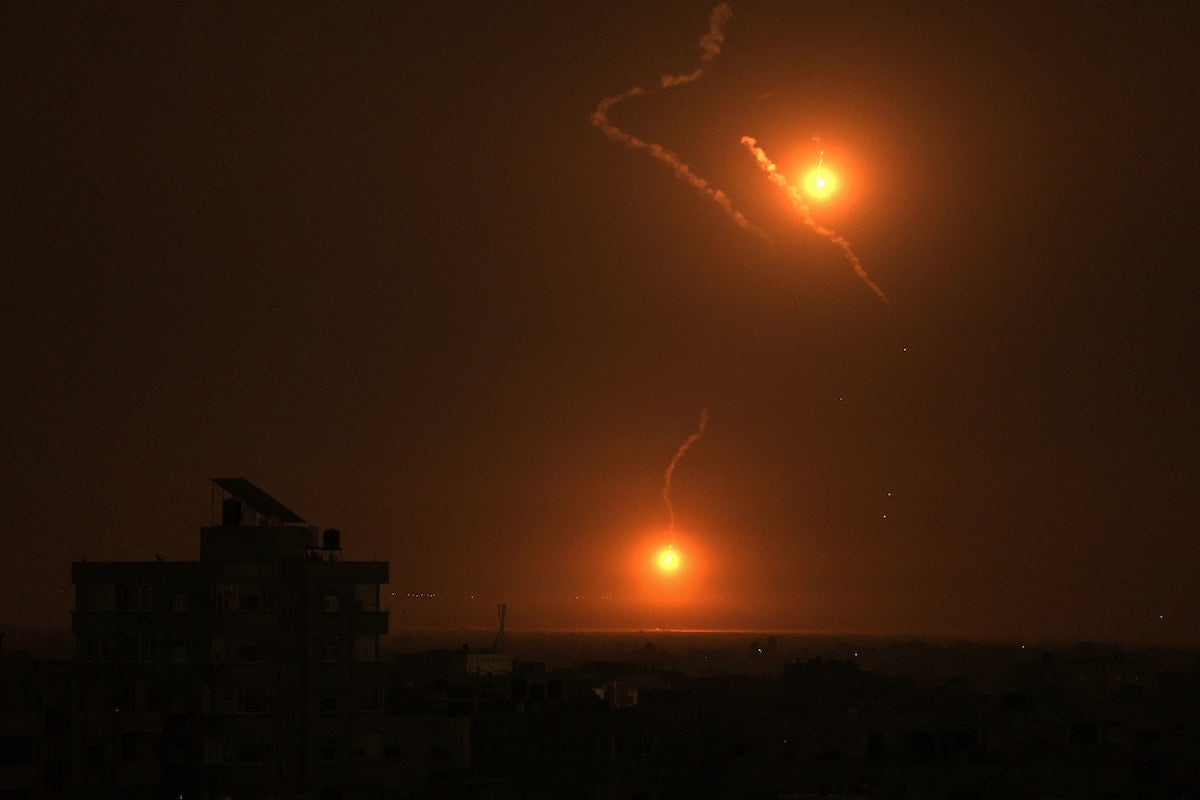Some people, communicating via satellite phones, have described the attack as the “heaviest bombardment yet,” according to independent journalist Sharif Kouddous.
“People can’t call ambulances or civil defense. We are being bombed in an unprecedented manner,” said an unidentified journalist at a Gaza hospital, according to a translation by The Nation’s Palestinian correspondent, Mohammed El-Kurd. “The sky around us just lights up [with explosions], and no one knows what’s going on.”



Night bombings are always known to be the most accurate.
Yeah - we should be glad that weapons technology actually evolved to a point, where carpet fire bombings of cities like Dresden or Hamburg (WW2) are a thing of the past.
Don’t forget Tokyo! Those we’re all war crimes interestingly enough.
Oddly the siege of Gaza may very well fall into that category with the amount of ordinance that’s been dropped, although the terminology would likely be different due to the guided aspect.
Perhaps it might even get it’s own unique term someday. I do find it quite similar from what I’m reading on the first instance of carpet bombing though, the bombing of Barcelona
Edit: sorry meant to add this as well
It’s probably worth pointing out that the Geneva Convention article you’re quoting was written a couple decades after both Tokyo and Barcelona events.
I guess take it up with the Wikipedia editors if you don’t like it?
I’m not saying it’s not a war crime according to the definition. I was just pointing out that the specific crimes precede the definition by a couple of decades.
But they weren’t war-crimes at the time and in fact, to the contrary, were very much in the spirit of war as it was being prosecuted by all of the belligerents.
There’s been a lot of really good work on the history of air power and the logic that led to deliberately targeting civilians in WW2 on all sides. It wasn’t necessarily as nakedly bloodthirsty as it appears to us now looking back. If you honestly believed that targeting civilians would shorten the war and ultimately result in less suffering, it was actually a moral decision, or at least morally ambiguous.